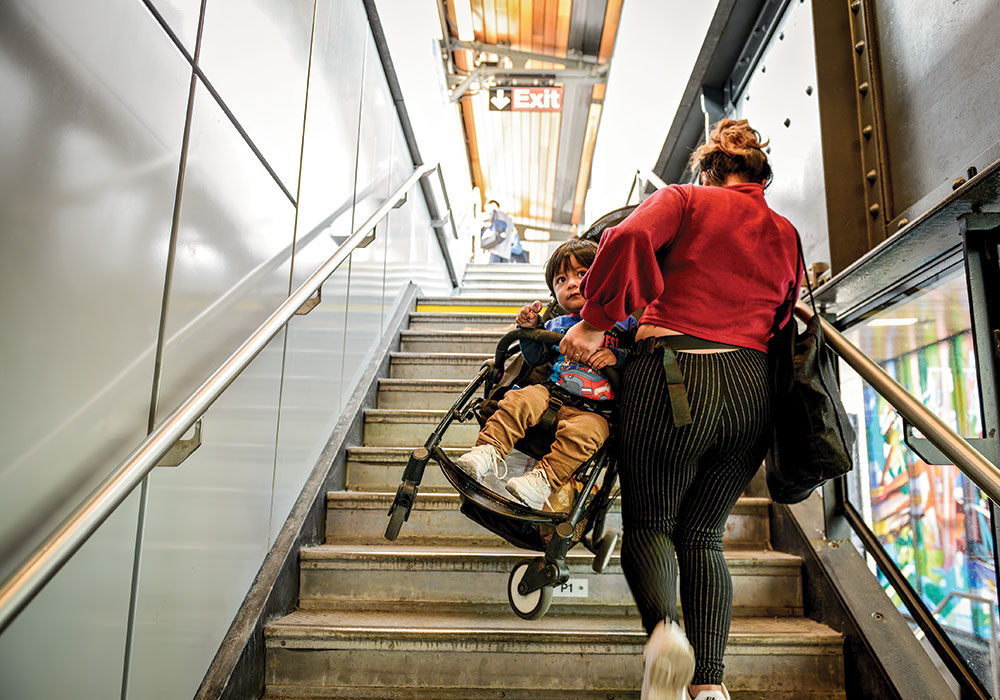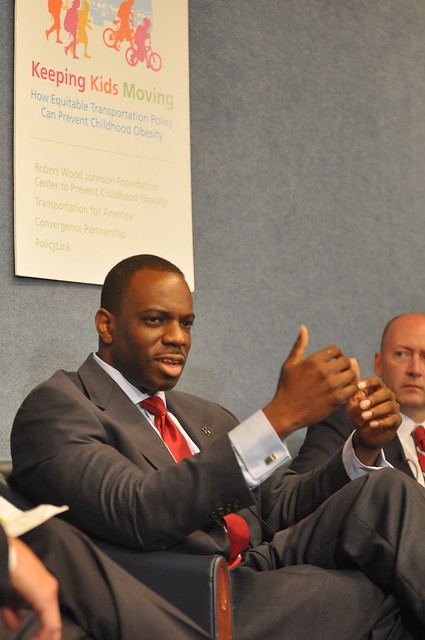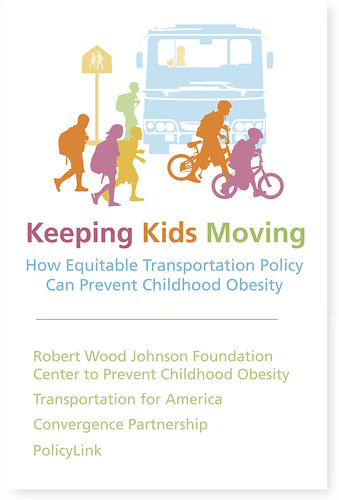
Helping kids get active and healthy by “keeping them moving”
 |
| Toks Nashville Originally uploaded by Transportation for America |
| Adetokunbo Omishakin, the Director of Healthy Living Initiatives for the City of Nashville, Tennessee, explained the barriers facing children and parents he met in parts of E. Nashville who want to walk or bike outside — but find their neighborhoods not only lacking sidewalks or bike lanes, but often facing crime that can keep them indoors. |
A healthier transportation system for America’s kids requires change in federal policy. But change will remain out of our grasp absent a sense of urgency from the everyday people on the ground.
The need for a meeting point between policymakers in Washington and citizens in their neighborhoods was evident in today’s roundtable on childhood obesity, titled “Keeping Kids Moving,” sponsored by Transportation for America, the Robert Wood Johnson Foundation Center to Prevent Childhood Obesity, The Convergence Partnership and PolicyLink.
We’re facing an epidemic of childhood obesity and poor health, and as a few people pointed out, this could very well be a generation of children who live shorter, less healthy lives than their parents if we don’t act now to change things.
The shape and structure of streets, sidewalks and the ability to safely use them has an enormous impact on whether children become overweight or obese. Kids get more physical activity and lead healthier lives when they can bike and walk to school, play in local parks and reach recreational opportunities with ease. Among American children between the ages of 10 and 17, 32 percent are overweight or obese, and many are at risk for more serious conditions like type 2 diabetes, heart disease and stroke. Obesity rates are disproportionately high among low-income and minority children.
In search of a solution, many routes invariably lead to transportation policy.
During the panel, several federal officials stressed the need for partnerships that cross departments and jurisdictions, with Roy Kienitz, undersecretary for policy at the Department of Transportation quipping, “transportation is too important to be left to transportation professionals.” Kienitz also emphasized the need for Americans to speak up and utilize the democratic process, noting that “the distance between the top [at DOT] and that sidewalk on your street is vast.”
Chip Johnson, mayor of Hernando, Mississippi, knows just how much of a difference one repair can make. As part of a broader push to repair his town’s streets, Johnson oversaw the pouring of concrete for a new sidewalk right outside his office window. On the old, cracked sidewalk, Johnson used to see a handful of pedestrians every morning, but he saw dozens more walking by once the improvements were completed.
“People want to exercise,” said Johnson, a Republican first elected mayor in 2005, adding that it’s up to officials like him to provide them the chance to do it.
 |
| keepkidsmoving2 Originally uploaded by Transportation for America |
While people like Undersecretary Kienitz, Special Assistant to the President Martha Coven and others are moving the levers where they can in Washington, local officials like Johnson are stepping up and refusing to wait, behavior encouraged by the federal officials who were present.
Nashville Mayor Karl Dean didn’t wait for Washington. He made safe and accessible streets for all users a top priority and hired a director of healthy living initiatives — Adetonkunbo Omishakin, also a panel participant — to help make it happen in Nashville. Child wellness advocate Julia Lopez, herself a teenager, didn’t wait either. Along with being an instigator of change on the ground around her home of southern California, she has traveled the country to bring a youth perspective to the obesity challenge, calling on elected officials to step up and help make healthy transportation the norm, not the exception.
It’s clear that these advocates on the ground and policymakers at the top can meet in the middle to make real change, but it will take continued pressure on Congress from both ends to get the job done.



